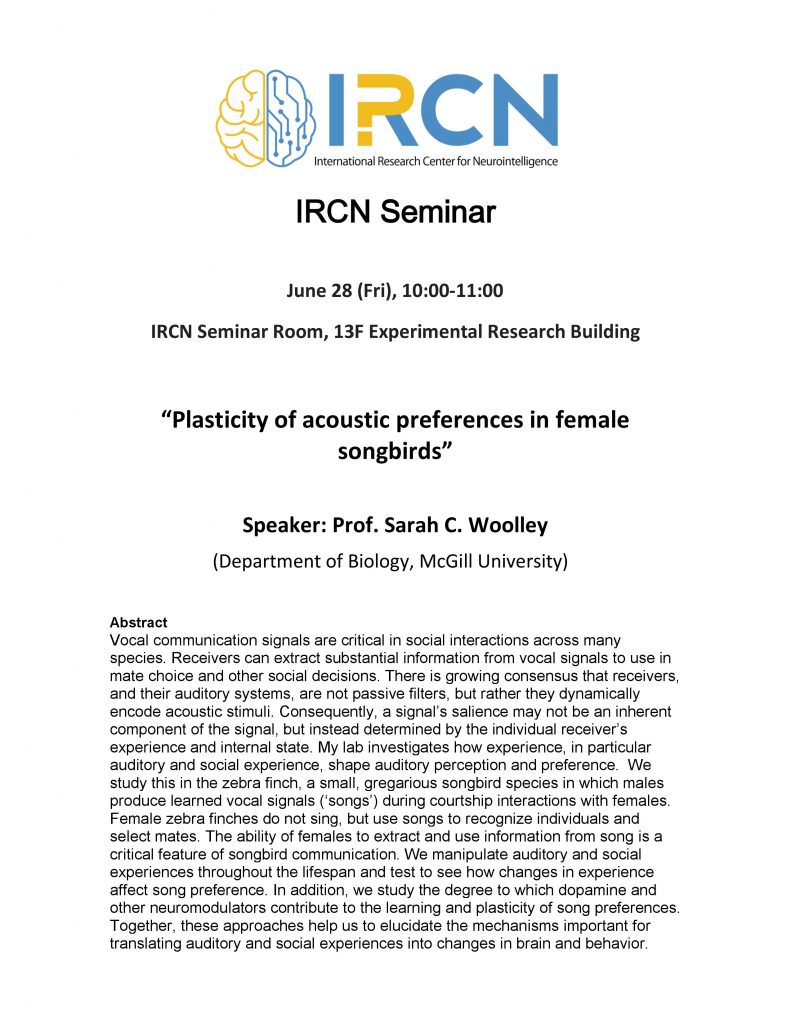Date: June 28, 2019 10:00-11:00
Venue: IRCN Seminar Room@13F, Faculty of Medicine Experimental Research Building, School of Medicine, Hongo Campus
Speaker: Sarah C. Woolley
Department of Biology, McGill University
For more information: yazaki-sugiyama@oist.jp (Yoko Yazaki-Sugiyama IRCN Principal Investigator)
*Please contact us if you are interested in this seminar.
Abstract:
Vocal communication signals are critical in social interactions across many species. Receivers can extract substantial information from vocal signals to use in mate choice and other social decisions. There is growing consensus that receivers, and their auditory systems, are not passive filters, but rather they dynamically encode acoustic stimuli. Consequently, a signal’s salience may not be an inherent component of the signal, but instead determined by the individual receiver’s experience and internal state. My lab investigates how experience, in particular auditory and social experience, shape auditory perception and preference. We study this in the zebra finch, a small, gregarious songbird species in which males produce learned vocal signals (‘songs’) during courtship interactions with females. Female zebra finches do not sing, but use songs to recognize individuals and select mates. The ability of females to extract and use information from song is a critical feature of songbird communication. We manipulate auditory and social experiences throughout the lifespan and test to see how changes in experience affect song preference. In addition, we study the degree to which dopamine and other neuromodulators contribute to the learning and plasticity of song preferences. Together, these approaches help us to elucidate the mechanisms important for translating auditory and social experiences into changes in brain and behavior.
Details are below or click here(PDF).



